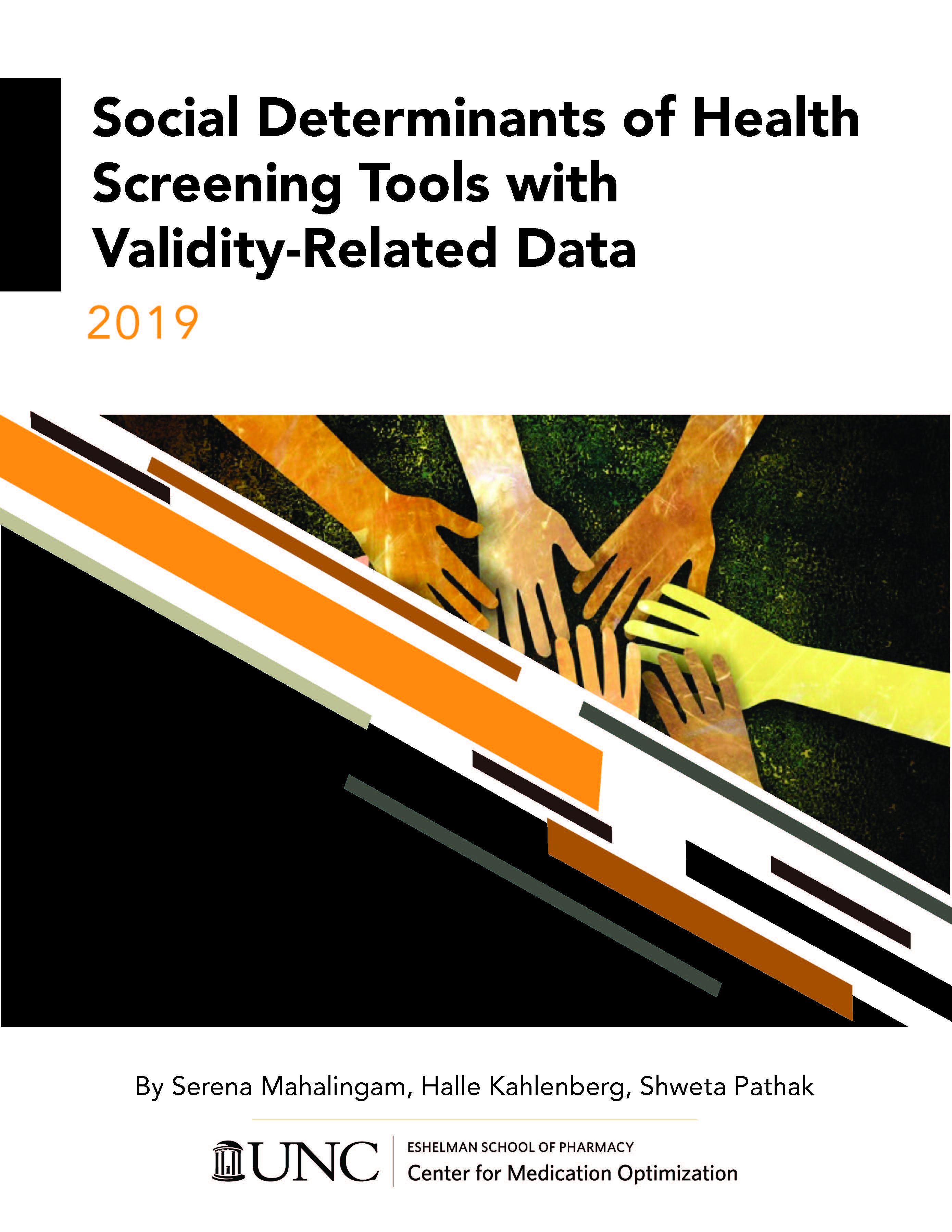Amber Ray
Community pharmacists are well aware of how difficult it is for people to properly take their prescription medications; however, many pharmacists struggle with how to systematically figure out why. Only about 50% of people take their medications as prescribed, and those struggling with housing instability, food insecurity, lack of transportation, unemployment, personal safety issues, and other social needs often find it even harder to take their medications as directed. People who have difficulty managing their medications in the face of challenging circumstances need tailored care, but before these non-clinical needs can be addressed, they must first be identified. While there are surveys and questionnaires that attempt to reveal unmet social needs, these tools are scarce and hard to find. So, the Center for Medication Optimization (CMO) at the UNC Eshleman School of Pharmacy has created a “cheat sheet” to help health care professionals better identify social barriers to medication adherence.
A research team at CMO has created a validated screening toolkit that compiles all of the publicly available screening questions that have been validated. This means that the screening questions have been tested to produce consistent and true results that correctly identify the right people. This toolkit can help identify unmet needs related to hunger, education, culture, interpersonal safety, transportation, child care support, and many other topics that might impact a people’s ability to focus whole-heartedly on their wellbeing. To our knowledge this is the first toolkit of its kind. Using validated screening questions is important to ensuring the accuracy of survey results. Non-validated questions can be dangerous as they may lead to the over- or under-identification of the target population. In other words, non-validated screening questions can lead to the wrong people being identified as in need, resulting in the use of resources on those who don’t need them at the expense of those who do. Therefore, using validated questions helps to make sure organizations are identifying and using their resources on the right people – those who truly have unmet social needs.
Using validated screening questions is important to ensuring the accuracy of survey results. Non-validated questions can be dangerous as they may lead to the over- or under-identification of the target population. In other words, non-validated screening questions can lead to the wrong people being identified as in need, resulting in the use of resources on those who don’t need them at the expense of those who do. Therefore, using validated questions helps to make sure organizations are identifying and using their resources on the right people – those who truly have unmet social needs.
This toolkit will also be extremely useful for those wanting to build their own screening surveys. Health care providers can use this information to target their limited resources and programs at those who can benefit most, ultimately leading to better health outcomes and more satisfied patients.
For full report click here.
